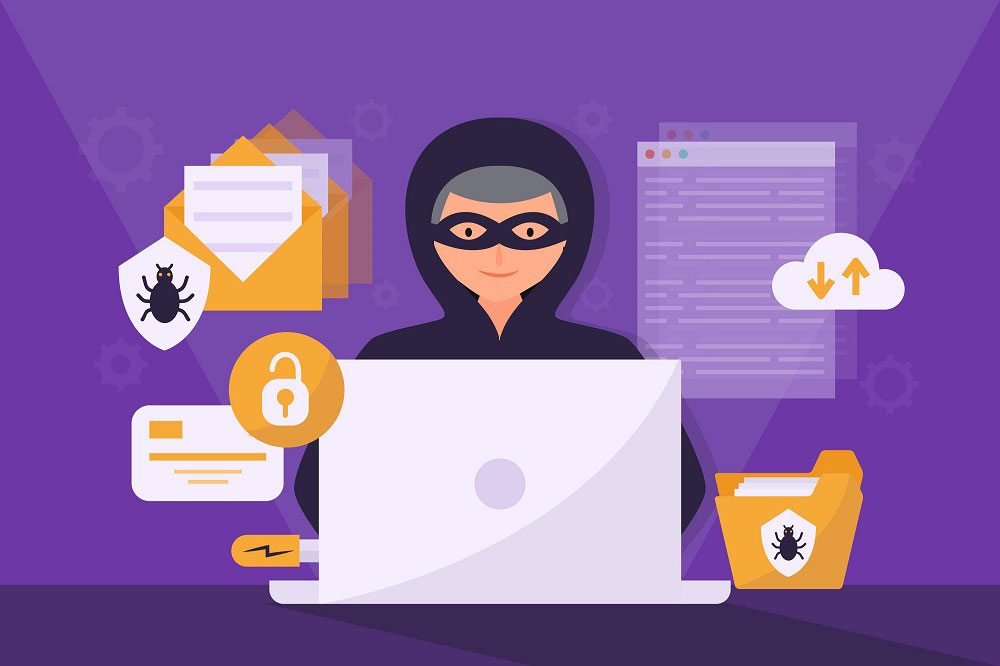Brand Infringement Affiliate Fraud – A Direct Impact on your Brand Reputation
Introduction
As per research by Nielsen Media, there are more than 500,000 brands worldwide in more than 2,000 product categories. Every business starts with a brand name which its customers recognize it. There are rules and regulations levied to help companies protect their brands from being copied or misused, yet cybercriminals find ways to deceive the brands and their customers.
Brand safety and brand protection are emerging more as part of the brand’s defensive marketing strategy. With the rise of the digital marketing year after year, monitoring the placement and positioning of the company’s brand has become one of the key priorities for the marketing teams.
Brand infringement cases threaten the brand's reputation, customer trust, and advertising ROI. And, brands are harder-pressed than ever to protect customers, maintain trust, and ensure their trademark and intellectual property safety.
In this article, we will cover what brand infringement is and how malicious affiliates use it to deceive advertisers.
What is a Brand?
A brand is an intangible asset assigned to a specific company, product, or individual. It’s a concept that helps people identify different entities and can include a name, a logo, a particular icon, color, and slogans. A brand name helps create a perception about the product or company and differentiates it from competitors.
A brand is considered a company’s most valuable asset, and thus companies register trademarks for their name, logo, images, brand color, icon, and more.
For example, a famous shoe brand, Addidas, trademarked the three lines they use on their products and even launched a legal case against another renowned brand for using it on their products.
As per a study, about 85% of brands experienced and reported cases of brand infringement in 2019. While the name of a brand is mainly targeted for infringement, the study found that the list also includes business web domains, social media handles, campaigns, online marketplaces and more.
The IAB Europe Brand Advertising Committee's 2020 industry poll revealed that 77% of brands rank brand safety as a key priority for marketing teams. In the digital marketing era, affiliate marketing has become one of the most used mediums to attract user traffic for any online business. Brands use various ways to be vigilant to ensure their brand and other intellectual property are safe. A few tracks are blacklisting & whitelisting suspicious domains, using targeted keywords, or hiring a vendor like Virus Positive Technologies to monitor their campaigns and affiliate marketing networks.
Marketers can use three legal methods to protect their brands through intellectual property rights.
- Trademark: A trademark can be a word, phrase, symbol, image, icon, or a combination of any of these, used to distinguish products and get legal rights on the property. Trademark is also specific to your goods and services, as the same name can be used for different categories of goods and services.
- Patent: The patent is mainly issued for innovation and is given for a specific time, and it protects your invention and allows you the only right to sell or make it for the specified time.
- Copyrights: Copyright protects the work of art, music, literature, photograph, and any tangible items of creativity. The owner then protects the right to sell, reproduce, and distribute their work, limiting access per their wish.
What is Brand Infringement?
Brand infringement in the digital world uses any brands or advertisers trademarked, patent, or copyrighted material to attract customers. Since the rise of digital marketing, criminal hackers have infringed many brands’ copyrights, trademarks, and IP, creating a need for a culture of brand protection.
In affiliate marketing, the basic concept lies in getting customers for the brand and earning commissions. Affiliates use digital platforms like social media, websites, marketplaces, and more to attract users and drive them to the advertiser's website. They get paid commissions for the sales converted from these leads. This model is a lucrative medium; thus, affiliates often indulge in malicious activities to earn more money.
Brand infringement is one of the common tactics used by affiliates to defraud brands. Malicious affiliates use the brand's trademarked property like name, logo, slogans, and more to attract user traffic. Such usage of the brand's name hits the brand's reputation and misleads the customers. This act of using a brand's intellectual property to attract users is known as Brand Infringement.
While instances of infringement are rising, its consequences on the brand are a matter of concern. We are listing the three significant effects below:
1. Impact on Brands Reputation
It takes years for companies to build a brand, so they register a trademark on their unique intangible properties specific to their products and services. Our case studies have scenarios where affiliates use the brand's trademarked property at places that affect any brand's reputation. For example, adult websites, websites selling arms and ammunition, etc.
2. Reduced Customers Trust
Affiliates use malicious tactics of collecting personal user information, redirecting customers from platform to platform, showing expired deals from the brand, and more. It eventually hurts the user's trust in the brand.
3. Loss of advertising funds
Using a brand's name and logo on promotional campaigns makes it easier for affiliates to attract customers. Advertisers end up paying affiliates commissions for using their own brand and getting traffic to their website. But brand infringement is a legal offense and has its share of penalties.
Different ways of infringing brands
Digital technology has revolutionized traditional marketing and given a vast opportunity for brands to connect and reach their customers. But the more extensive the digital footprint, the bigger the digital risks. Cybercriminals have used the digital space to infringe upon many brands' trademarks, copyrights, and other intellectual property to steal money from advertisers and personal information from brand-loyal customers.
Data from various sources revealed that customers are likely to fall for phishing attacks easily. Such attacks exploit a trusted brand's image and damage the customer’s trust.
Thus, marketers must look to protect their brand against additional risks, such as:
- Domain spoofing and typosquatting: Malicious affiliates intentionally register domain names to mimic legitimate sources to trick online buyers and steal their credentials, drop malware onto their system, or collect their personal information that can be sold.
- Phishing attacks: Emails containing a brand's name and logos, perhaps offering a flash sale or shipping information for a product never ordered but linking to a download or website that drops malware or steals their data. Customers respond to such emails in the name of the famous brand but end up being a victim of the phishing attack.
- Social media attacks: The malicious affiliates can create social media accounts to impersonate brands, interact with customers, and make seemingly legitimate posts. In some cases, these social interactions might include links to spoofed websites. In others, impersonators might strive to tarnish a brand’s reputation.
- Paid Ads Violation: Threat actors can hijack paid advertising campaigns on popular search engines to direct customers away from legitimate sources, causing your brand to lose convertible traffic and compete against your branded keywords. Meanwhile, your customers might end up with counterfeit goods or land on a malicious website that steals their personal information.
How to protect your brand from the threat of infringement?
Virus Positive Technologies is the pioneer in affiliate fraud management services and brand protection solutions. We have been supporting global brands to recover their lost marketing budgets, protect their brand's reputation, and enhance the customer's experience. VPT has identified the threat areas in the affiliate marketing industry and developed solutions for Brand Infringement detection, monitoring, tracking, and analyzing the affiliate networks, and ensuring compliance with the internal and external marketing guidelines.

.jpg)





